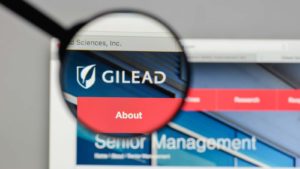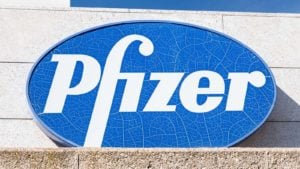One of the most important areas of technological development has always been biotechnology. These products can have a profound effect, especially in medicine and agriculture. And due to the novel coronavirus, a large number of biotech stocks have been making headlines.
According to recent research led by Ruklanthi de Alwis of the Duke-NUS Medical School:
“There are no licensed vaccines or proven antiviral therapy to protect or treat against Covid-19. Hence once infected, case management is entirely supportive care. Antiviral therapy that effectively arrests disease progression and efficacious vaccines that protect against severe Covid-19 is thus urgently required to meet medical and public health needs.”
There are currently a large number of companies working on a vaccine or another type of drug in the fight against the novel coronavirus. The long list includes AstraZeneca (NYSE:AZN), Amgen (NASDAQ:AMGN), Biogen (NASDAQ:BIIB), Biontech (NASDAQ:BNTX), CureVac (NASDAQ:CVAC), Gilead (NASDAQ:GILD), GlaxoSmithKline (NYSE:GSK), Ibio (NYSE:IBIO), Inovio Pharmaceuticals (NASDAQ:INO), Johnson & Johnson (NYSE:JNJ), Merck (NYSE:MRK), Moderna (NASDAQ:MRNA), Novavax (NASDAQ:NVAX), Pfizer (NYSE:PFE), Regeneron Pharmaceuticals (NASDAQ:REGN), Sanofi (NASDAQ:SNY), and Sorrento Therapeutics (NASDAQ:SRNE).
Another study by Duke Human Vaccine Institute highlight:
“Two countermeasures with promise for controlling the current SARS-CoV-2 pandemic are recombinant neutralizing antibodies … and vaccines … directed against the virus that causes COVID-19, SARS-CoV-2. I. Vaccines are the time honored method for establishing long-lived immune memory for controlling infectious diseases… In addition to efficacy being the primary goal of SARS-CoV-2 vaccine development, safety is also a major concern…”
The authors emphasize how important animal preclinical studies followed by human clinical trials will be crucial to develop “safe and effective anti COVID-19 antibody and vaccine countermeasures.”
In other words, the road ahead for these companies is still quite long and not all of them will necessarily have a successful therapy that will be approved by various authorities globally. This uncertain but cautiously optimistic outlook makes these stocks both volatile and potentially lucrative.
With that in mind, here are seven biotech stocks to consider in the coming weeks:
- Etfmg Treatments Testing and Advancements ETF (NYSEARCA:GERM)
- First Trust NYSE Arca Biotechnology Index Fund (NYSEARCA:FBT)
- Gilead Sciences (NASDAQ:GILD)
- Pfizer (NYSE:PFE)
- Regeneron Pharmaceuticals
- Vaneck Vectors Biotech ETF (NYSEARCA:BBH)
- West Pharmaceutical Services (NYSE:WST)
As of the first week of October, the global number of reported Covid-19 cases was more than 35 million. Finding a cure has been top priority in 2020, and these 7 stocks stand to profit immensely from the vaccine crunch.
Biotech Stocks to Play the Vaccine Crunch: Etfmg Treatments Testing and Advancements ETF (GERM)

52-week range: $23.80 – $35.15
Expense ratio: 0.68%
Our first choice is the Etfmg Treatments Testing and Advancements ETF. This exchange-traded fund (ETF) provides exposure to biotech companies focused on testing and treating infectious diseases, including research and development (R&D), diagnostic technology and vaccine development. Analysts estimate global human vaccine market will “grow at a CAGR of 7.73% during the period 2018-2022.”
North America is expected to show robust growth due to “factors such as large presence of manufacturers, robust government policy regarding the healthcare, and high awareness among the population for several vaccines.”
GERM, which has 63 holdings, started trading in June 2020 and hopes to capture part of this growth in the treatment of infectious diseases, especially in vaccines. It tracks the Prime Treatments, Testing and Advancements Index. The top ten fund holdings constitute over 50% of assets under managements. Among those companies are Biontech, Moderna, Laboratory Corporation of America (NYSE:LH), Quidel (NASDAQ:QDEL), and Quest Diagnostics (NYSE:DGX).
Because the ETF is a new fund, we do not have much data to analyze past performance. However, those investors interested in vaccine and treatment development for infectious diseases may keep it on their radar as a biotech stock to buy.
First Trust NYSE Arca Biotechnology Index Fund (FBT)

52-week range: $108.08 – $180.64
Expense ratio: 0.55%
Our second discussion also centers around an ETF, namely the First Trust NYSE Arca Biotechnology Index Fund, which provides exposure to a range of biotech firms that concentrate on areas such as recombinant DNA technology, molecular biology, genetic engineering, and genomics.
FBT, which has 30 holdings, tracks the NYSE Arca Biotechnology Index, which is rebalanced quarterly. The fund has been trading since 2006. The top ten firms make up about 40% of net assets of $2 billion. No company in the fund has more than a 4.5.% weighting. As a result, none can affect the moves in FBT much by itself.
Several of the biotech stocks working on a Covid-19 therapy are components of the fund. They include Amgen, Biogen, Gilead, and Regeneron Pharmaceuticals. Other notable firms in FBT are Charles River Laboratories International (NYSE:CRL), Qiagen (NYSE:QGEN), and Seattle Genetics (NASDAQ:SGEN).
Year-to-date, the fund is up about 4% and hit an all-time high earlier in July. Since then, profit-taking has kicked in. Long-term shareholders may regard upcoming declines as opportunity to go long FBT.
Gilead Sciences (GILD)

52-week range: $61.37 – 85.97
Dividend yield: 4.26%
Foster City, California-based Gilead Sciences concentrates on developing treatments for infections, respiratory disorders, cardiovascular conditions, and cancer. Its well-known for its treatments for HIV, Hepatitis C, and cancer.
Yet, due to multiple quarters of declining revenues, over the past five years, GILD stock has been in a downtrend. Despite being one of the most respected biotech stocks, investors have shunned the shares.
However, the pandemic has added a new dimension to the company’s therapeutic offerings, i.e., its Covid-19 treatment, Remdesivir. Although it is “an experimental medicine that does not have established safety or efficacy for the treatment of any condition,” the treatment frequently makes the headlines, especially as it was recently used as part of the treatment protocol for President Trump.
On March 19, the stock hit a 52-week high. It was around the same date most other stocks were making 52-week lows. Since then, it has been a choppy year and GILD stock is now hovering around $63. It is down 4% for the year.
As a result of the weakness in price, its forward P/E (9.0) and P/S (3.55) ratios offer better value than in previous months. A decline toward $60 would make improve the margin of safety for long-term investors. They’d also be entitled to the juicy dividends.
Pfizer (PFE)

52-week range: $27.88 – $40.97
Dividend yield: 4.15%
Pfizer, one of the world’s largest pharmaceutical companies, offers a wide range of drugs across a large therapeutic spectrum. It also ranks as one of the largest prescription biopharma businesses worldwide. In fact, it has two of the world’s best-selling drugs, i.e., the breast cancer treatment Ibrance and the blood thinner Eliquis (co-owned by Bristol-Meyers Squibb (NYSE:BMY).
The pandemic has further put Pfizer in the limelight, thanks to its collaboration with Germany-based BioNTech. Since mid-March, they have been jointly developing “BioNTech’s mRNA-based vaccine candidate BNT162 to prevent COVID-19 infection.” Many analysts concur that the vaccine could be a significant catalyst for PFE stock.
However, even if the vaccine development does not become successful, Pfizer’s current drugs and pipeline would mean relatively stable revenue and stable cash flows, which, in return, would be important for continued juicy dividend payments.
Earlier in the summer, the group released better-than-expected second-quarter earnings. Management also raised the outlook for the rest of the year.
Year-to-date (YTD), PFE stock is down about 7%. Its forward P/E and P/S ratios stand at 11.83 and 4.36. Any move toward $35 could possibly seen as an opportune entry point.
Regeneron Pharmaceuticals (REGN)

52-week range: $1279.22 – $664.64
Dividend yield: 0.23%
Like Gilead Sciences, Regeneron Pharmaceuticals has been getting considerable attention, as REGN-COV2, its experimental antibody therapy cocktail, has been administered to President Trump.
In addition, the company focuses on drugs against metabolic disorders, cancer, inflammatory diseases, and respiratory conditions. Its two top drugs Dupixent, used for allergic diseases, and Eylea, used to treat a number of serious eye conditions, contribute to revenues greatly.
In early August, the Tarrytown, NY-based Regeneron Pharmaceuticals announced strong Q2 metrics. Revenue went up 24% YoY and hit $1.95 billion. CEO Leonard S. Schleifer, M.D., Ph.D. commented “We have advanced REGN-COV2, our antibody cocktail for COVID-19, into late-stage clinical studies in record time and are working to ensure supply is available later this year. We are continuing to drive strong performance with our marketed medicines, including EYLEA, Dupixent, and Libtayo.”
YTD, REGN stock is up about 60%. Put another way, it has outperformed many other biotech stocks as well as the broader market. Its forward P/E and P/S ratios are 17.42 and 7.5, respectively. The stock doesn’t look cheap at this point. But 2020 is no ordinary year, especially for biotech stocks. We’d look to buy the shares, especially if they decline toward $575. We have to remind our readers that, like most other biotech stocks, REGN shares are higly volatile.
Vaneck Vectors Biotech ETF (BBH)

52-week range: $112.03 – $178.10
Dividend yield: 0.29%
Expense Ratio: 0.35% per year
The pandemic has made the biotech space glamorous. A recent report by IBISWorld highlights, “Biotechnology industry has historically grown quickly, characterized by a multitude of product applications and a wide range of burgeoning markets.” The industry is growing. For example, “as of 2020, the US biotech revenue is $114.8 billion… There were over 130,000 biotech employees in the US in 2018. There were 2,946 biotech businesses in the US as of 2019… 6 of the top 10 companies in the world are from the United States.”
We now discuss another exchange-traded fund, i.e., the VanEck Vectors Biotech ETF, which provides exposure to both U.S.-based and global firms that develop and commercialize drugs based on genetic analysis and diagnostic equipment. BBH, which has 25 holdings, tracks the MVIS US Listed Biotech 25 Index.
The top ten holdings of the fund constitute almost 65% assets under management, which stand close to $480 million. Among those ten biotech firms are Amgen, Biogen, Gilead, Moderna and Regeneron Pharmaceuticals, which are all involved in the race to find a cure against the novel coronavirus. 90% of the companies come from the U.S., followed by China and Spain.
So far in 2020, the fund is up over 17%. In fact, in late July, it hit an all-time high. Strong growth prospects in the top names, especially due to potential Covid-19 therapies, have provided tailwinds for most of these shares.
However, short-term profit-taking may push BBH toward $160, or even below. Such a potential drop in price would enable the fund to offer better value for long-term investors.
West Pharmaceutical Services (WST)

52-week range: $124.53 – $288.65
Dividend yield: 0.23%
Last but not least on our list is West Pharmaceutical Services. The company is not a biotechnology firm. Rather it is global manufacturer of delivery packaging for drugs and health care products. Its products include
- Stoppers and seals for injectable packaging systems,
- Syringe and cartridge components
- Self-injection systems
- Containment and delivery systems
They are crucial healthcare solutions, especially in times of the global pandemic. In other words, the group operates in a niche part of the market. The group’s history goes back to 1923 and has manufacturing plants in North America as well as Europe..
In late July, the Exton, Pennsylvania-based company released robust Q2 results. Revenue of $527.2 million was up 12.2% YoY. Management also boosted the full-year net revenue guidance. It is likely to pass the 2019-number of $1.84 billion. Investors were pleased.
Year-to-date, WST stock is up close to 90% and on Sept. 2, the shares hit an all-time high. Part of the reason behind the rally is investors belief that it will play a leading role in manufacturing the packages that may be used in transporting Covid-19 vaccines. Given its moat, the company is likely to grow revenues in coming quarters. However, valuation is not cheap. FOrward P/E and P/S ratios are 65.79 and 11.16. Investors may look to buy the dips, especially if the price falls toward $250.
On the date of publication, Tezcan Gecgil did not have (either directly or indirectly) any positions in the securities mentioned in this article.
Tezcan Gecgil has worked in investment management for over two decades in the U.S. and U.K. In addition to formal higher education in the field, she has also completed all 3 levels of the Chartered Market Technician (CMT) examination. Her passion is for options trading based on technical analysis of fundamentally strong companies. She especially enjoys setting up weekly covered calls for income generation. She also publishes educational articles on long-term investing.
